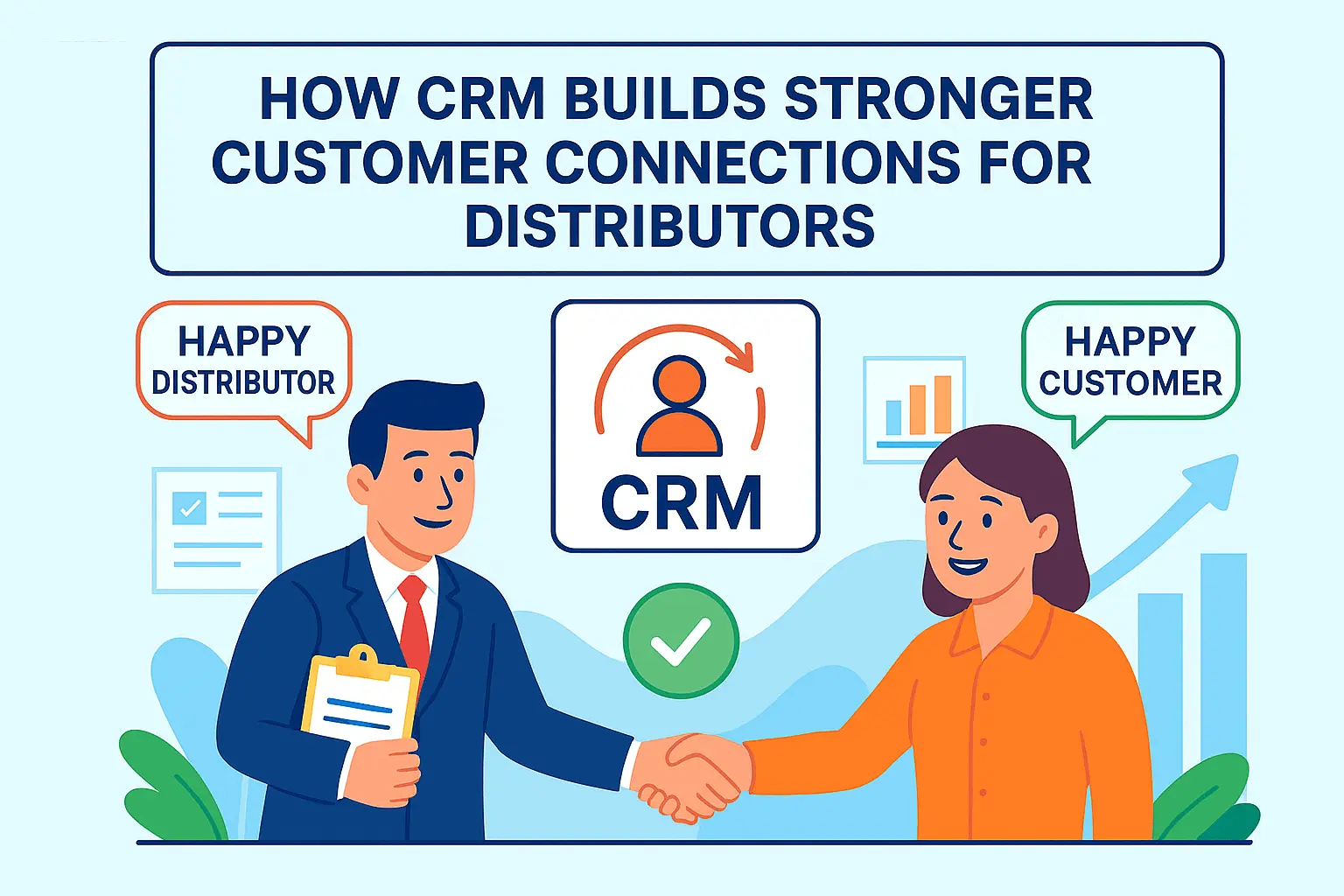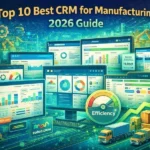Top 10 Best CRM for Manufacturing: 2026 Guide
13 Feb, 2026
Manufacturing isn’t retail. Your sales cycles stretch across weeks or...
Updated: 16th September, 2025

Wholesale distributors are not faced with simple order tracking challenges. They are faced with slow sales cycles, fluctuating customer demand, and many diversified contact points to deal with daily. Where competition is intense, survival is a function of stable, steady, and lasting customer relations.
That’s where a Customer Relationship Management (CRM) system comes in. Today’s CRM is more than a data repository—it transforms distributors’ communication with customers, streamlines processes, and grows their business.
Every contact with a customer holds a piece of the big picture. A CRM puts sales, marketing, and service data in one place. Instead of isolated facts, teams can quickly glance at past orders, requests, service requests, and campaign responses.
It allows for the easy determination of the customers’ needs and the quick provision of correct and relevant solutions.
Distribution encompasses a number of interdependent functions—sales, logistics, finance, and customer service. Without a common system, data is lost, and there’s a holdup or a miscommunication.
A CRM develops an environment of transparency through a common view for every department. If everyone is aligned, then things run more efficiently and customers are presented with a similar experience.
Distributors in a typical situation lead a mobile lifestyle. Salesmen are on the road calling on customers, monitoring shipments, and filling expedited orders away from the office. A mobile-enabled CRM allows them to remain in communication at a moment’s notice.
Real-time availability of records of customers, stock, and purchase orders enables teams to provide instant responses and earn customers’ confidence.
Two customers are not different. Some require bulk orders, while some require fast delivery or made-to-order products. Segmentation of customers via CRM is very easy and simple, based on location, purchase, and engagement patterns.
Segmentation allows distributors to push targeted promotions, tailored messages, and tailored solutions for specific needs. Increased repeat business and interaction are the results.
Aside from data storage, a CRM can also interpret trends and offer predictive suggestions. Distribution merchants can predict demand, recognise purchase cycles, and even detect areas for cross-selling or upselling.
These findings enable businesses to anticipate and outpace customer expectations and make strategic plans in favour of growth.
Good relations do not end once you’ve completed the sale. Customers desire service within a reasonable time span, rapid communication, and simplified complaint resolution. A CRM facilitates easy service request handling, tracking of complaints, and follow-up.
Improved efficiency in after-sales relations demonstrates your concern for your buyers, winning their loyalty and thereby trust.
It’s a relationship business. At its very core. Centralised data distributors who communicate better and offer tailored service establish unforgettable experiences for customers. Happier customers are repeat business inclined, recommend, and purchase in greater quantities.
Such loyalty in a competitive world is a key stimulant to stable revenues and durable growth.
Wholesale distributors succeed on the strength of good customer relationships. A CRM system is more than a tool; it’s a strategy for having responsive, up-to-date, and customer-focused teams.
Combine actionable insights, mobile availability, intelligent segmentation, and superior after-sales service, and the CRM enables distributors to establish trust and create lasting customer value.

13 Feb, 2026
Manufacturing isn’t retail. Your sales cycles stretch across weeks or...

11 Feb, 2026
Running a business now is not the same as before....

10 Feb, 2026
For Indian small and medium businesses, WhatsApp is not just...

09 Feb, 2026
Let me be honest, if you’re running a B2B sales...

05 Feb, 2026
Most businesses invest in a CRM Software with one simple...